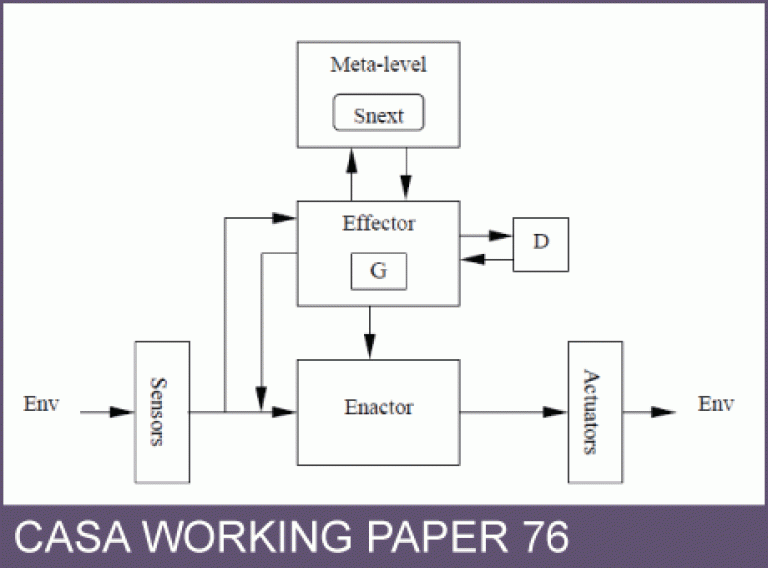CASA Working Paper 76

1 March 2004
Design and anticipation: towards an organisational view of design systems
Although the first attempts to establish a systematic way of studying, teaching and practicing design go back to the 1960s (Asimov 1962; Alexander 1963; Archer 1965), we are today just as far from agreeing on a definition of design science, let alone a definition of design itself. And although we will be discussing here the concept of anticipation and its 'repercussions' for the understanding and development of design systems, we will find that this paper is about anticipation as it is about scientific explanation. This is because the concept of anticipation couples with a special kind of scientific enquiry and explanation: an approach to science which takes the view that complex realities (or systems) can be better understood by studying their organisational principles, rather than building descriptions of their structural components.
Research in various fields such as systems theory, cybernetics, information theory, artificial intelligence, physics, biology, and complexity science, gave birth to concepts (such as entropy, complexity and requisite variety) that marked this transition from observations of the state space of a system, to the examination of the system itself in terms of its functional components and their relations (Rashevsky 1954; Thóm 1972; Rosen 1991). In parallel, the concept of anticipation has also emerged as an alternative type of causality or reasoning which seeks to replace the reactive, cause-and-effect, Newtonian universe with a proactive one, according to which anticipated future states of a system can affect its current states (final cause explanations) (Rosen 1985; Dubois and Resconi 1992; Glaserfeld 1998).
It is asserted here, that if transferred to the context of design, the idea of anticipation necessitates studying and explaining design abilities on the basis of the organisational conditions and characteristics that underlie design systems. Organisational explanations are a potentially attractive direction of research because they allow the definition and explanation of essential design phenomena (or abilities) irrespective of the specific structures we can use to realise them.
In the following will we first review some predominant approaches to anticipation, both in natural and artificial systems, and subsequently discuss the concept of anticipation in the domain of design with the intention to develop a foundation for a formal definition of design systems.
This working paper is available as a PDF. The file size is 279KB.
Authors: Katerina Alexiou, Theodore Zamenopoulos
Publication Date: 1/3/2004
 Close
Close

